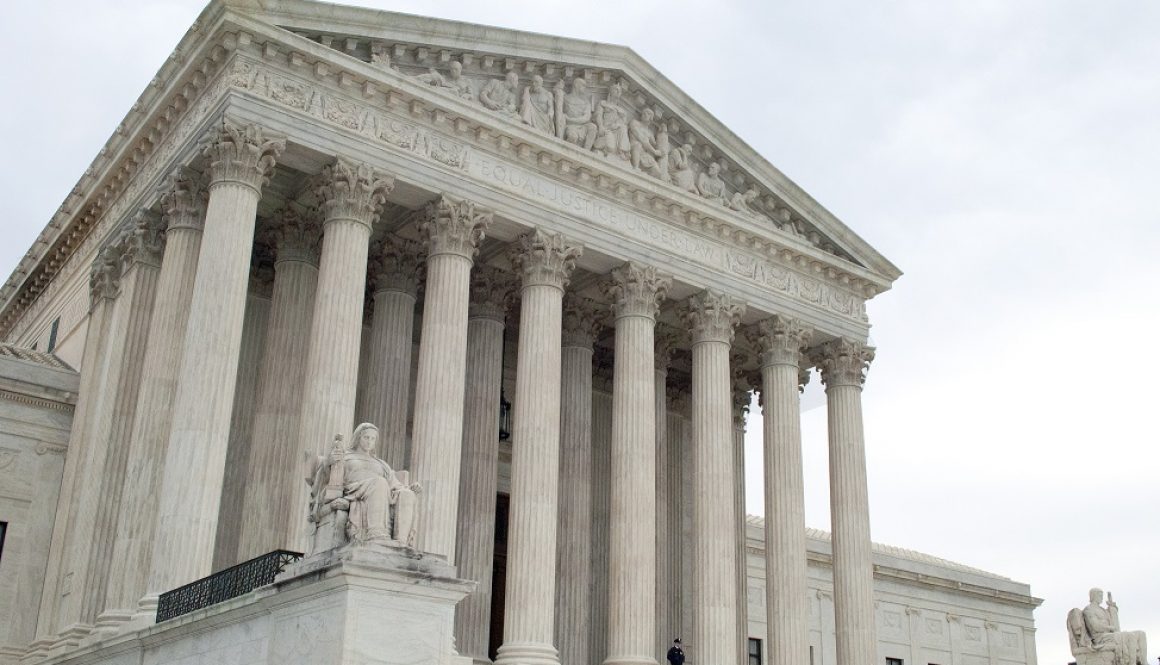The Chamber’s SCOTUS success and why we need a Powell memo for the left
The U.S. Supreme Court’s recent decisions in Burwell v. Hobby Lobby, a corporate victory of “startling breadth,” and in Harris v. Quinn, are only the latest in a trend at the U.S. Supreme Court over the past six years.
A new report by the Constitutional Accountability Center titled “The U.S. Chamber of Commerce Continues its Winning Ways” shows that the U.S. Chamber of Commerce has gotten its way in an astonishing 80 percent of the cases it has argued over the past three terms, including 69 percent this term and 70 percent since President George W. Bush appointed Justices John Roberts and Samuel Alito to the court.
The Chamber’s 80 percent success rate over the past three terms comprises 32 wins and just eight losses. That’s a streak like the one enjoyed by Lebron James’ 2013 Miami Heat, which had one of the best seasons in NBA history last year, winning 80 percent of its games on its way to a second straight championship.
The Chamber’s winning streak since Alito succeeded Justice Sandra Day O’Connor in 2006, with a 70 percent win rate over that time period, is a distinct phenomenon: the Chamber won only 43 percent of the time in the Burger court (15 of 35 from 1981-1986) and 56 percent in the Rehnquist court (45 of 80 from 1994-2005).
This suggests that the Chamber’s recent record owes more to the current composition of the court than the Chamber’s lawyering, so it’s important not to overstate the Chamber’s influence on what the court actually decides.
The report also notes how aggressively the Chamber works to overturn long held precedents considered unfriendly to business interests. While the Chamber and its Institute for Legal Reform rail against “activist attorneys general” and lawyers “seeking a big, fat payday” to demonize judicial arguments that would rein in corporate abuses, they routinely recommend that the Supreme Court overrule longstanding and settled precedent.
“For instance,” the report reads, “the Chamber argued that the Court should second-guess two centuries of executive practice in [National Labor Relations Board v.] Canning, overrule a quarter-century’s worth of precedent in Halliburton [Co. v. Erica P. John Fund, Inc.], limit the EPA’s authority to regulate greenhouse gases in [Utility Air Regulatory Group v. EPA], and toss out important interstate air pollution rules in EPA v. EME Homer.”
We are now seeing the culmination of decades of Chamber work in the courts, dating back to the infamous 1971 memorandum by corporate tobacco attorney Lewis Powell, that said, in part,
“Strength lies in organization, in careful long-range planning and implementation, in consistency of action over an indefinite period of years, in the scale of financing available only through joint effort, and in the political power available only through united action and national organizations. … The role of the National Chamber of Commerce is therefore vital. … Under our constitutional system, especially with an activist-minded Supreme Court, the judiciary may be the most important instrument for social, economic and political change.”
The same year Powell wrote his memorandum, President Richard Nixon nominated him to the Supreme Court, where he wrote the opinion that the Roberts court used to reach its corrosive Citizens United v. Federal Elections Commission decision, which allowed corporations to spend unlimited sums to influence political campaigns. The Chamber’s decades of lobbying, campaign spending and aggression in the courts are paying off at accelerating rates.
Powell wrote his memorandum in response to a period of success for progressive issues in the courts, college campuses and other arenas of influence. His paper concluded,
“The first step should be a thorough study. But this would be an exercise in futility unless the Board of Directors of the Chamber accepts the fundamental premise of this paper, namely, that business and the enterprise system are in deep trouble, and the hour is late.”
It seems clear that the tables have turned. The Chamber’s resounding successes in the Supreme Court over the past six years spell trouble for the equality and sustainability of our country. It is long past time for the left, both institutional and non-institutional, to redouble its efforts. The hour is late.
Sam Jewler is the communications and research officer for Public Citizen’s Chamber Watch program.

